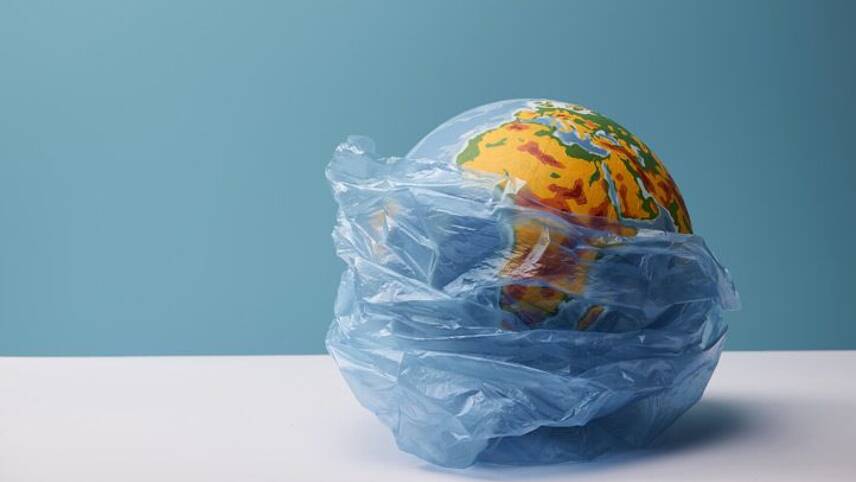Register for free and continue reading
Join our growing army of changemakers and get unlimited access to our premium content

Every year, the world’s towns and cities generate over two billion tonnes of waste. We can and must urgently address this by shifting to a circular economy. This is not an idealistic option but a necessity. We need a rapid re-imagining of our relationship with our resources, which is one of the main reasons the United Nations is holding its first-ever International Day of Zero Waste on 30th March.
A circular economy is about re-organising around the idea that resources – like food, plastic, energy, wood and metals – are inherently precious and limited. It means moving away from a linear ‘take, make, use and discard’ society, towards one that balances its use of natural resources. Doing so will secure access to resources for the generations to come and protect our natural world.
In practice, we must adhere to two principles. First, we must cut waste at every stage of supply chains. Then, instead of getting rid of things at the end of a product’s lifecycle, we should be repurposing and reusing it. For example, food waste can be fermented to make animal feed or biogas, and plastic can be recycled to make new products.
A third of all food produced for human consumption is wasted or lost. Each year, a staggering 1.3 billion tonnes of food never gets eaten. Meanwhile, humans annually produce 400 million tonnes of plastic – twice as much as two decades ago. The good news is that for both food and plastics, we already know what we must do; now it’s about ensuring the pace and scale of change required.
As well as addressing food waste linked to manufacture and retail operations, we must cut food loss on farms too. As things stand, 14% of global food production is lost between harvest and retail, which represents 50% of all global food loss and waste.
Part of the difficulty is that complex, multi-layered supply chains risk reducing a company’s visibility about where food loss happens. Ensuring transparency and regular, robust reporting is critical. What gets measured gets managed. We must also boost consumer awareness around ending food waste, including clear labelling so people know when food is still safe to eat.
There is no doubt that plastic has an important role in getting products to people in a safe and reliable way. But to protect the natural environment while meeting the needs of our growing global population, we need to continue research and development to find sustainable alternative raw materials. Businesses must also invest in innovation to improve packaging design and eliminate the use of problematic and excess materials. And we must end the export of plastic waste from country to country, which will require governments around the world to invest in local recycling facilities.
The potential benefits of a circular economy are huge – not least in helping to meet climate goals. If food waste were a country, it would have the third biggest carbon footprint in the world, just behind China and the US. It’s a key driver of the climate crisis. And plastic is responsible for 3.4% of global greenhouse gas emissions, according to the OECD. With the UN’s latest Intergovernmental Panel on Climate Change report warning that the world is on the brink of catastrophic warming, we must pull every lever possible to minimise irreversible damage.
International momentum is mounting to tackle these issues. In July, the United Nations’ Food Systems Stocktaking Moment will task countries with reviewing their progress on transforming how they produce food to meet the Sustainable Development Goals. It will be a crucial opportunity to ensure greater accountability from all those who can help create a more equitable, sustainable and thriving food system.
When it comes to plastic, the UN has already endorsed a historic resolution to end plastic pollution through the global plastics treaty – and we need to seize this huge opportunity. The detail of the treaty must now be agreed, and the transition to a circular economy should be embedded in its goals.
At The Consumer Goods Forum, we have already undertaken important groundwork that could help inform the treaty’s approach to packaging design. Indeed, the 41 members of our Plastic Waste Coalition, which collectively represent over 10% of the global plastic packaging market, have created Golden Design Rules to help industry use less and better plastic.
Time is running out. We cannot keep on producing waste, especially when it comes to food and plastic. The answer is pulling together to create a circular economy, in which waste is eliminated, resources are circulated and nature is regenerated. In the fairer, cleaner and greener future, we must replace the word ‘waste’ with ‘end of life innovation’.



Very interesting and figures we have all seen before but always are incredulous. We really need to apply legislation that punishes waste and encourages good practice. Food should not be wasted on this scale and everyone, particularly in wealthier parts of the world are culpable if not ensuring they are exhausting all opportunities to use the food within their control.